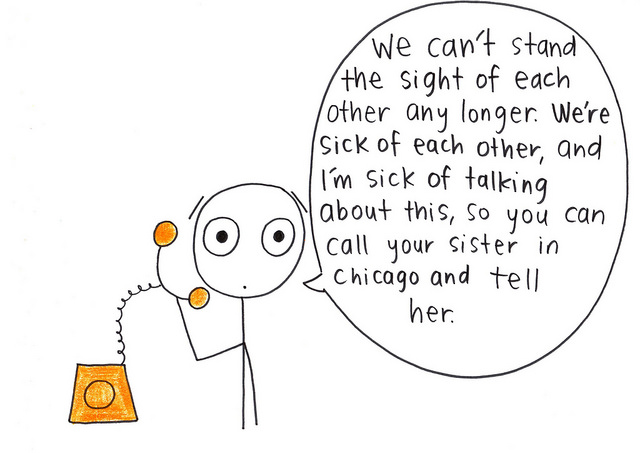
Divorce is still a norm when it comes to marriage—hear the word marriage and you’ll usually hear the word divorce along with it.
There are many interesting articles out there on the top 10 or 15 reasons for divorce, pointing to such examples as affairs, financial struggles, and getting in it for the wrong reasons.
However, I’m here to assert there are really only two main reasons people get divorced, which lead to all other reasons and justifications.
First, let me say that there is nothing fundamentally wrong with divorce. Divorce is simply what it is and because no one really learned how to do long-term relationships in school (or anywhere for that matter), people tend to suffer through the long-term relationship game.
So, what are the two reasons most people get divorced?
Reason #1: Because one person gets empowered and outgrows their often stuck partner.
Reason #2: Because one person was unable or unwilling to work through the baggage that their partner is triggering in them.
Notice how both reasons are framed from a “personal responsibility” standpoint.
So, my suggestion is to stop making it about the ex. “They couldn’t. They aren’t. They didn’t. They won’t.”
When you make your divorce about yourself (not self-blame by the way, see below), you are on your way to getting empowered.
With reason #1, you outgrew them. You decided and chose to leave because you wanted to keep growing and expanding and they didn’t want to join you in the growth experience of an ever-evolving partnership.
Reason #1 is like a boundary where you walk away with self-respect and dignity. You gave it your all and didn’t feel met.
If the reason you’re divorcing is #2, you were unable to work with yourself. You couldn’t quite break through your issues that arose as a result of being triggered by your partner’s behavior.
Simple, right?
Divorce is just not that complicated. It all boils down to these two reasons. Here are three examples:
Example 1: “My partner triggered me so intensely that I just didn’t know how to work with my upset. I was never able to get traction with our conflicts. I kept getting stuck. My activation was almost too much for me, so I stopped trying and left so I could function again.” (Spoken with personal responsibility.)
Example 2: “I was in a marriage with an abusive partner. That’s why our marriage ended. He/she kept hurting me.” (Spoken from a blame standpoint.)
Or the same one said in a responsible way…
Example 3: “For some reason I stayed in an abusive marriage X amount of time and I finally realized I was putting myself in harm’s way and chose to leave in order to take better care of myself.”
In example 2, if you were in an abusive marriage where your partner was hitting you, it’s a good call to leave, right? Yes, but notice the difference between the person who leaves with the finger pointed at their abusive partner or the partner who leaves owning their part. One leaves empowered and one leaves disempowered.
Are there other reasons people get divorced?
Sure, but as long as we point the finger outward, we’ll stay stuck in our victim web. We are talking about the difference between “fault” and “responsibility.” The empowered person owns their part and moves on by taking responsibility. In doing so, they understand where they can improve and then have the power to transform it.
Whatever your reason for divorce, own it as yours to deal with. That way, you don’t have to stay in the victim seat and you can get empowered in a spot where you could use a little awareness and help. Feel free to listen to the podcast on this exact topic here for more suggestions.
~
Author: Jayson Gaddis
Image: studio tdes/Flickr
Editor: Katarina Tavčar


 Share on bsky
Share on bsky




Read 12 comments and reply